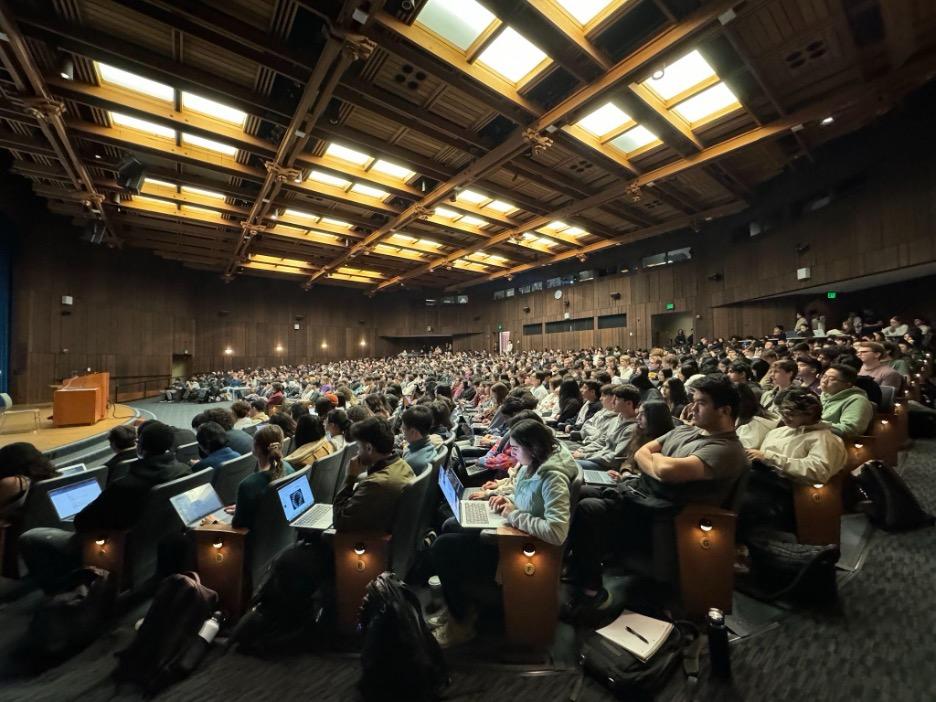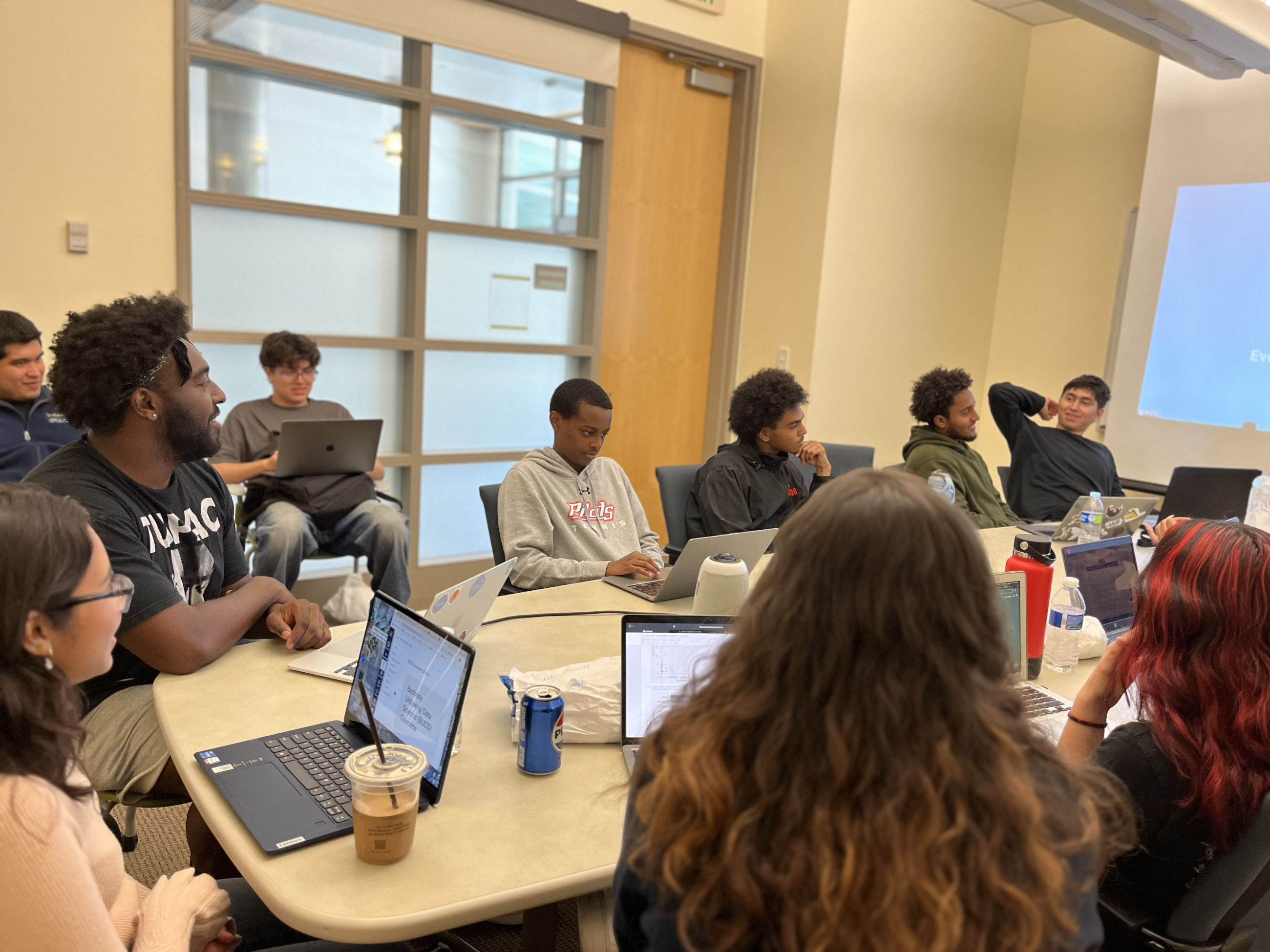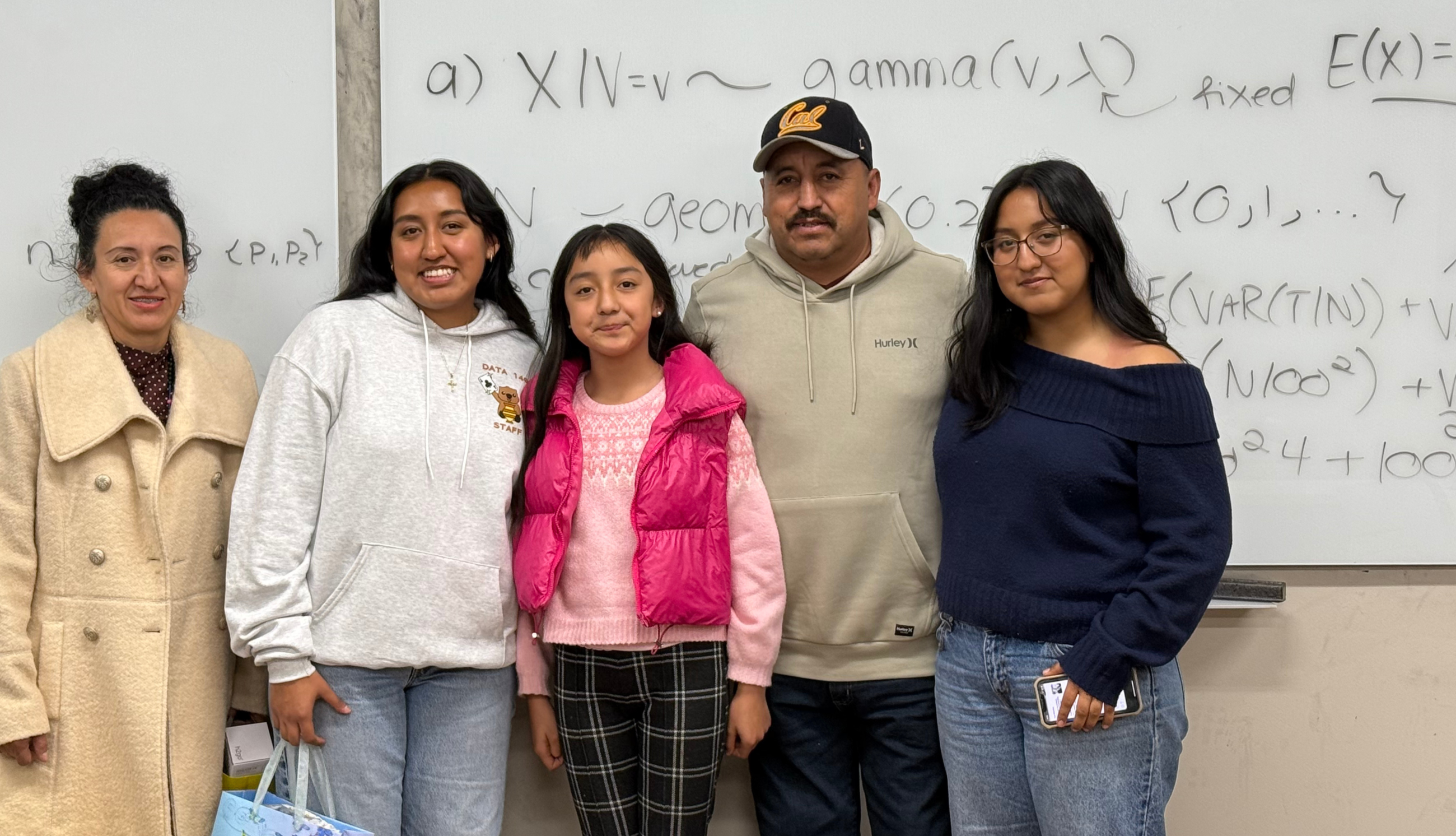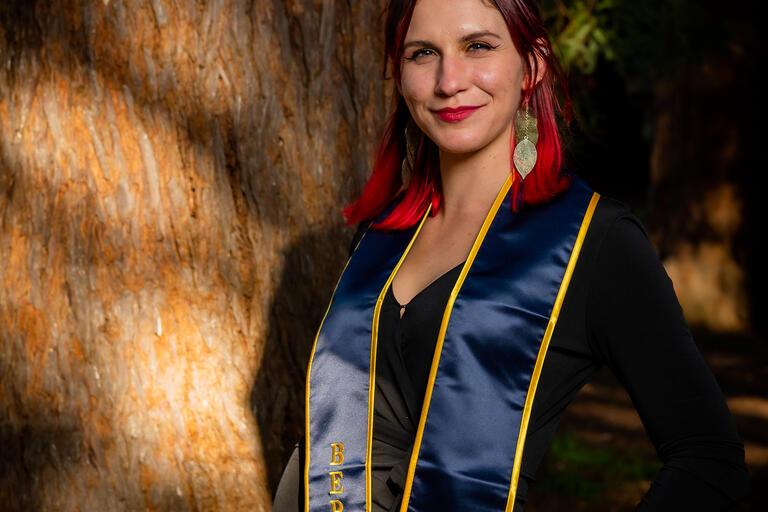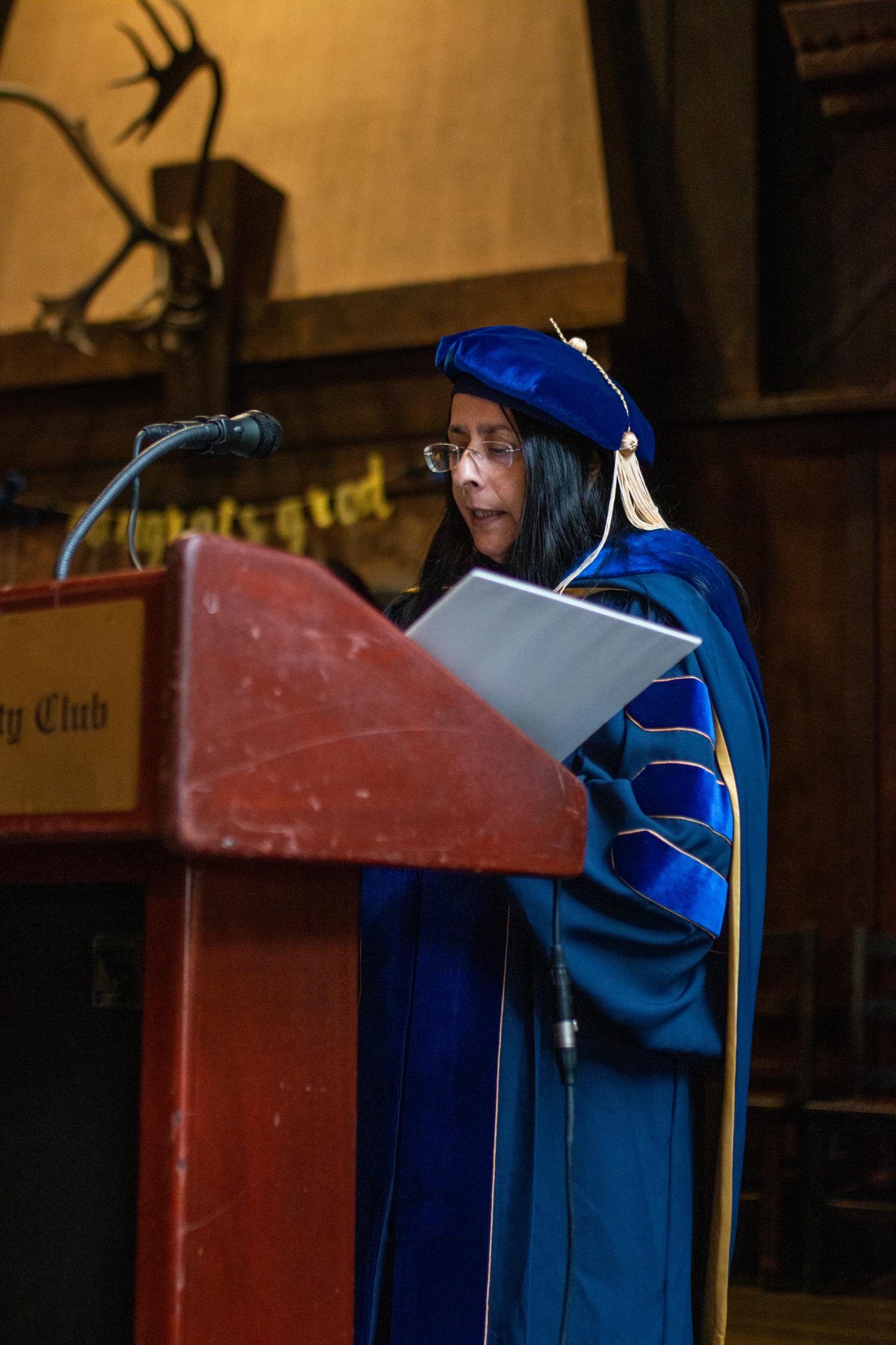
The Committee on Diversity, Equity and Campus Climate (DECC) has awarded the 2024 Leon A. Henkin Citation for Distinguished Service to Professor Ani Adhikari. This prestigious award honors a faculty member whose career has demonstrated extraordinary commitment to enhancing the academic success of students from traditionally underrepresented groups.
Adhikari’s dedication shines through her leadership of the Data Scholars program. This initiative offers academic support, community, and opportunities beyond the classroom to students from minoritized backgrounds.
"You aim high, not low."
Adhikari’s philosophy, inspired by the legacy of Leon A. Henkin, centers around collaboration and empowerment. “The students have in them talent and skills and it is your job to stand next to them and collaborate with them in bringing those skills out. You don’t do that with remedial work. You do that by giving them the work of the class and then some. You give them work that is exciting and then the two of you can work on that together and that leads to wonderful things. You aim high, not low.”
Ramisha Kabir, a Data Scholars student who had no coding background prior to college, recalls noticing a distinct difference in the culture compared to her other experiences in STEM. “In data science, I never felt it was bad not to know something. The course staff is really well-equipped to give people the guiding materials to get them to where they need to go without making them feel that their background is a limiting factor. Ani plays a huge role in setting that tone.”
This citation has particular significance for Adhikari, as Leon A. Henkin played an influential role in Adhikari’s career. Adhikari started out as a “girl who liked math” in India, where she was forced to switch out of an all-girls school in order to access the education she needed. In her graduate classes at UC Berkeley, she was accustomed to being the lone woman, or one of two. In the late 1980s, Henkin identified Adhikari’s strength in teaching statistics to students with little to no background in mathematics and drew her into a program that exposed underrepresented students to college-level mathematics and helped them see pathways to advance in the field.
The impact of Adhikari’s passion is evident in the testimonials of her students. Thomas Gerken, a lead undergraduate student instructor (UGSI) with the Data Scholars program, describes how she connected with its students. “She tells them, ‘If data science does not bring in people from diverse backgrounds, with different perspectives and life experiences, the discipline as a whole is going to fail.” He recalls that she makes a point to talk to each individual scholar to ensure they feel welcome and valued.
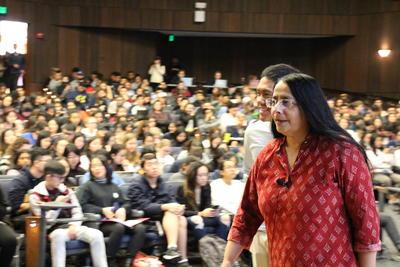
Matthew Shen, a graduating senior and lead UGSI for data science courses, highlights the value of Adhikari intentionally elevating students from underrepresented backgrounds into these roles. “The composition of data science course staff is noticeably more diverse than typical in STEM classes, so students from minoritized communities can see themselves in the people teaching the courses. It really encourages underrepresented students to continue in data science.”
“When someone from a minoritized group teaches, not only do they inspire the students like them in the class, they immediately show all the other students who can be a data scientist.”
Adhikari’s focus on elevating students from underrepresented backgrounds into teaching roles is central to her vision for the program’s future. “When someone from a minoritized group teaches, not only do they inspire the students like them in the class, they immediately show all the other students who can be a data scientist.”
Professor Julianna Deardorff, a member of the citation selection committee, says this made Adhikari’s nomination stand out. By uplifting underrepresented students into these roles, they can in turn create impacts to the environment beyond the reach of one individual.
And yet, it is Adhikari’s impact on an individual-scale that holds the most meaning for the students who nominated her. “She really cares for her students–how they turn out and what’s best for them,” says Shen. “I feel very fortunate and privileged to have received a lot of mentorship from her and I know she’s done that for so many people. That’s part of why she’s so remarkable.”
Kabir recounts attending her very first office hour as a first-year at Berkeley, which happened to be with Adhikari. Kabir was an “office hours skeptic” and didn’t expect much from the experience. She was startled when, in that initial meeting, Adhikari encouraged her to apply for the course staff. That goal of teaching changed something for Kabir and would become the motivation for her to continue in the field. Now, two and half years later, Kabir is a co-lead UGSI for Data Scholars.
“I want to tell her thank you for believing in me. There’s a lot of power in someone with a lot of experience seeing capability in you,” says Kabir. “It made me put aside my self-doubt and decide to see what I could do.”
Read more about the 2024 Leon A. Henkin Citation for Distinguished Service at the UC Berkeley Academic Senate website.

